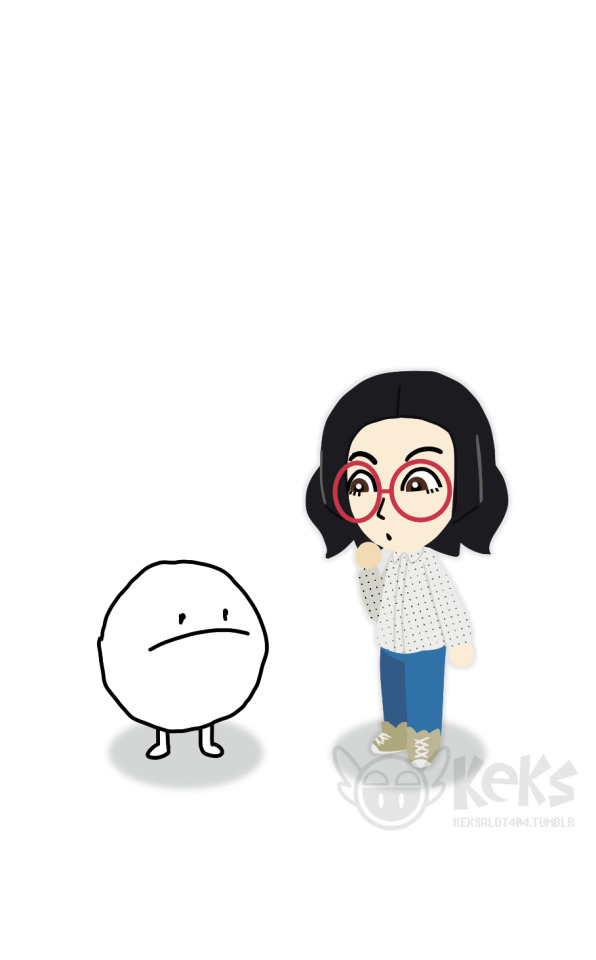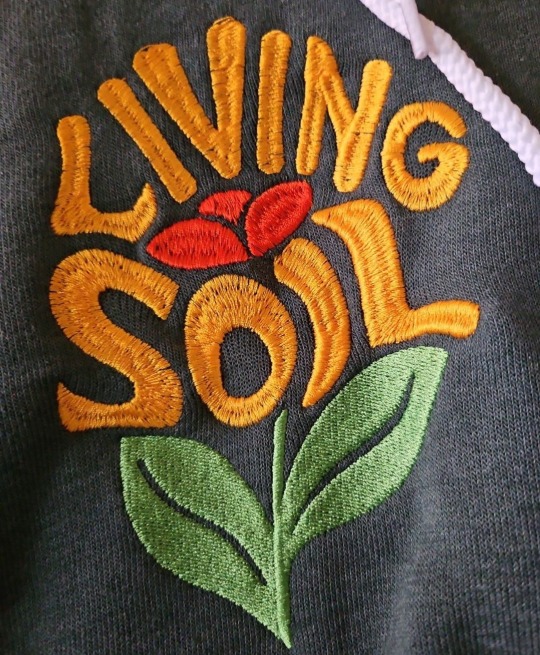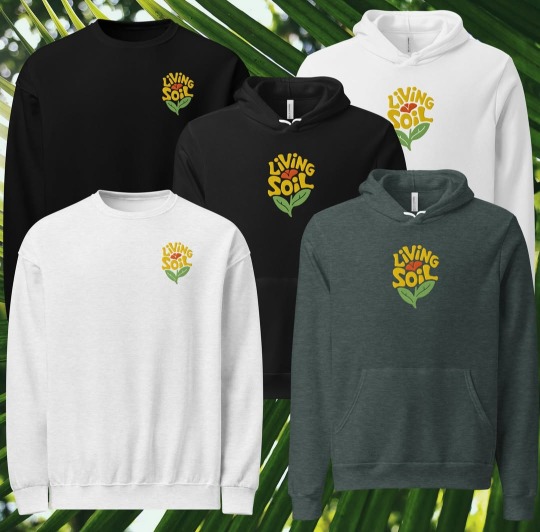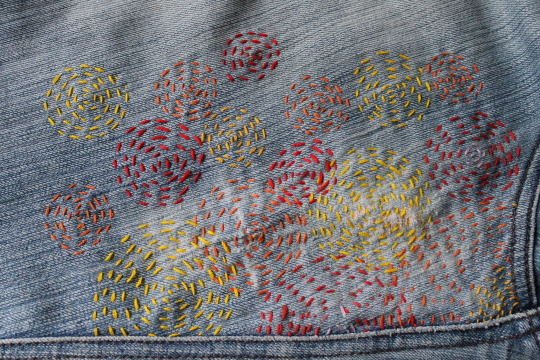#living sustainably
Explore tagged Tumblr posts
Text
#composting#food scraps#making compost#living sustainably#making soil#making your own soil#i do mine in the community garden#but not professionally#just putting everything in a pile#and then 2 yrs later spreading it in the garden#it works excellently
42 notes
·
View notes
Text


benandjerrys on Instagram
#ben and jerrys#ben and jerry's ice cream#election 2024#project 2025#black lives matter#blm movement#hope#hopecore#united states#us politics#donald trump#elon musk#gen z#positivity#happiness#climate justice#climate change#greta thunberg#save palestine#save our planet#sustainability#vegan#vegetarian#liberals#booklr#bookworm#banned books#blacklivesmatter#leftist#leftism
13K notes
·
View notes
Text

If you think you never get anything you want, just think that it's coming all at once.
#nintendo#nintendo direct#rhythm heaven#rhythm heaven groove#tomodachi life#tomodachi life living the dream#ah to be a niche franchise nintendo fan#fun fact: both times it said 2026 I audibly swore#Only Deltarune can sustain me now
2K notes
·
View notes
Text


Emmrich w his heated cushion
#organically heated for our sustainable king#this is bc of that one anon#I couldn’t live with emmrich never having lap time :(#emmrook#crow rook#dragon age the veilguard#emmrich volkarin#iinadraws
2K notes
·
View notes
Text
#sustainable living#sustainable#sustainable living tips#what is sustainable living#what is sustainable living?#living#how to live sustainably#sustainable living uk#examples sustainable living#living sustainably#sustainable living ideas#is sustainable living hard#is sustainable living easy#sustainable living in the uk#what is the sustainable living#is sustainable living difficult#how to start living sustainably#sustainable living for beginners
0 notes
Text
It’s an open secret in fashion. Unsold inventory goes to the incinerator; excess handbags are slashed so they can’t be resold; perfectly usable products are sent to the landfill to avoid discounts and flash sales. The European Union wants to put an end to these unsustainable practices. On Monday, [December 4, 2023], it banned the destruction of unsold textiles and footwear.
“It is time to end the model of ‘take, make, dispose’ that is so harmful to our planet, our health and our economy,” MEP Alessandra Moretti said in a statement. “Banning the destruction of unsold textiles and footwear will contribute to a shift in the way fast fashion manufacturers produce their goods.”
This comes as part of a broader push to tighten sustainable fashion legislation, with new policies around ecodesign, greenwashing and textile waste phasing in over the next few years. The ban on destroying unsold goods will be among the longer lead times: large businesses have two years to comply, and SMEs have been granted up to six years. It’s not yet clear on whether the ban applies to companies headquartered in the EU, or any that operate there, as well as how this ban might impact regions outside of Europe.
For many, this is a welcome decision that indirectly tackles the controversial topics of overproduction and degrowth. Policymakers may not be directly telling brands to produce less, or placing limits on how many units they can make each year, but they are penalising those overproducing, which is a step in the right direction, says Eco-Age sustainability consultant Philippa Grogan. “This has been a dirty secret of the fashion industry for so long. The ban won’t end overproduction on its own, but hopefully it will compel brands to be better organised, more responsible and less greedy.”
Clarifications to come
There are some kinks to iron out, says Scott Lipinski, CEO of Fashion Council Germany and the European Fashion Alliance (EFA). The EFA is calling on the EU to clarify what it means by both “unsold goods” and “destruction”. Unsold goods, to the EFA, mean they are fit for consumption or sale (excluding counterfeits, samples or prototypes)...
The question of what happens to these unsold goods if they are not destroyed is yet to be answered. “Will they be shipped around the world? Will they be reused as deadstock or shredded and downcycled? Will outlet stores have an abundance of stock to sell?” asks Grogan.
Large companies will also have to disclose how many unsold consumer products they discard each year and why, a rule the EU is hoping will curb overproduction and destruction...
Could this shift supply chains?
For Dio Kurazawa, founder of sustainable fashion consultancy The Bear Scouts, this is an opportunity for brands to increase supply chain agility and wean themselves off the wholesale model so many rely on. “This is the time to get behind innovations like pre-order and on-demand manufacturing,” he says. “It’s a chance for brands to play with AI to understand the future of forecasting. Technology can help brands be more intentional with what they make, so they have less unsold goods in the first place.”
Grogan is equally optimistic about what this could mean for sustainable fashion in general. “It’s great to see that this is more ambitious than the EU’s original proposal and that it specifically calls out textiles. It demonstrates a willingness from policymakers to create a more robust system,” she says. “Banning the destruction of unsold goods might make brands rethink their production models and possibly better forecast their collections.”
One of the outstanding questions is over enforcement. Time and again, brands have used the lack of supply chain transparency in fashion as an excuse for bad behaviour. Part of the challenge with the EU’s new ban will be proving that brands are destroying unsold goods, not to mention how they’re doing it and to what extent, says Kurazawa. “Someone obviously knows what is happening and where, but will the EU?”"
-via British Vogue, December 7, 2023
#fashion#slow fashion#style#european union#eu#eu news#eu politics#sustainability#upcycle#reuse#reduce reuse recycle#ecofriendly#fashion brands#fashion trends#waste#sustainable fashion#sustainable living#eco friendly#good news#hope
10K notes
·
View notes
Text
OCTOBER BLOG

Illustration by Miki Howenstein

Give yourself a treat
October 25 (in the book “Jumbo Jumble”)
Many people are sure that living in a sustainable way must be about "giving up" things. It doesn't occur to them that living in an unsustainable way is also about giving up things, very precious things like security, hope, light-heartedness, and freedom from anxiety, fear, and guilt.
JR: When someone says “We must live sustainably,” she is then put on the defensive, and is forced to explain that doing so really isn’t so bad. Yet, those who claim (in action or in word) that “We can continue to live unsustainably,” aren’t questioned, for that is how the majority of us live, and we wish not to be burdened with the implications of continuing upon this path. We indeed give up many precious things because of the way we live. Living sustainably implies having more connection with others and the earth, more sharing, and once again enjoying the gifts of nature that we have grown oblivious to. In other words, it means living more joyfully.
PP: What activity do you do that is beneficial both for other people and for the earth? How about devoting more time and energy to it?
PA: Being a pescatarian has helped me feel better about my consumption, making me feel healthier physically and mentally (being beneficial for the earth and preventing needless suffering to livestock). At the same time, as I become more aware of food issues, I realize the need to find ways for my eating habits to support fairness (fair trade) and a healthy environment (eating locally especially) as well.
0 notes
Note
I feel like if you're using a lot of disposable plastic bags in your day to day life, you've gotta do something sustainable to make up for it. Like using bamboo toilet paper or eco friendly cat litter or something, yknow
Honestly I exaggerate for comedic effect, while I DO routinely use ziplock bags to hold spaghetti I cook maybe once a month and the bag itself is usually for freezer storage. I actually throw out maybe one bag a week? I DO hate washing plates and tupperware and junk but that usually just means I eat sandwiches without a plate.
I agree though that needless waste should be avoided, and I do avoid it- biodegradable bags and recyclables, empty butter tubs used to store leftovers, etc.
This said, though, not applicable necessarily for myself but for a lot of others- I feel that it's importat to remember that there are many people who legitimately NEED things like plastic straws, or catheters, or pre-packaged foods
And the idea that that's a moral failing that individuals need to personally make up for when a single billionaire blows out more CO2 in a long weekend than I will in my whole life on a superjet meet-cute in the Bolivian rainforest between humvee drag races funded by the river-polluting textiles plants they planted in a third world country to avoid EPA laws and give an entire village stillbirths and stomach cancer is an idea that those very same bigwigs have spent a LOT of time and money investing in planting in the public psyche.
Like- Glass bottles are infinitely recyclable, so why are so many drinks in plastic now? Loads of drinks manufacturers used to buy them back and clean them for re-use, so why did they stop? If they chose to make something out of a limited and environmentally irresponsible material, why is it my failing to track down a correct process of disposal for them? What if there are none in my area? Do I lobby for more recycling plants in my area? Do I set aside some of my limited time outside the pain factory of my job- which I have more than one of, thanks to rising costs of things just like that drink I just emptied- to properly dispose of this company's waste FOR them?
Say coca-cola just rolled up to your town and started dumping millions of empty plastic bottles in the street, going, "wow, you should really think about building and staffing a recycling depot, it would be really shameful of you to just put these in the trash." When companies purposefully use materials with limited lifespans- because yes, even plastic can only be reused so many times- and tell you it's your own fault if it harms the environment- that's essentially what they're doing, just with more steps.
Yes, its important to be as environmentally concious as we can in our day to day life, but responsible sustainability is not catholicism. We don't get good boy points from our lord and savior Captain Planet every time the average low-income household gathers together to hold hands and repent for a single-use plastic that allows them to access something they need.
Entire families could eat trees and shit dead lithium batteries for years and still not do as much damage to the planet as an average dye plant or braindead celebrity does in a week just for fun, and I'm mad about it
...this went on longer than intended.
TL/DR: DO recycle and minimize waste, but don't beat yourself up over the little waste you can't avoid, and follow the money.
EDIT: Part 2
#I swear to god if any one of you in the notes calls me terminally online or pretends I'm saying you can just dump bags in the ocean#Yes definitely do your best to live sustainably#But also#You personally are not killing pandas#Unless you are in which case please stop#We put too much money into pandas but let them go in peace#Go do some yoga#Sorry if this is a lot but I have a friend with OCD who has legit panic attacks over stuff like this#Like they have to throw out a ripped plastic grocery bag they've had for six years instead of using it to weave yard furniture or smthn#And they'd go into a spiral about killing the planet#So like#I have strong feelings now
1K notes
·
View notes
Text
if you haven’t at least tried sewing or crocheting or knitting your own clothes, you really should. even if it’s just one time and you never do it again, i really think everyone should do it at least once
learning how to crochet was what finally made me grasp the abject horror of the fast fashion industry and realize just how laborious and time consuming it is. i have to take a few days off a week so my back/wrists don’t get sore — and i get to do this as a leisure activity in the comfort of my own home, rather than in a sweatshop. it takes dozens of hours to produce a single item. there is just something about trying it yourself that makes you realize just how little the people making our clothes are being paid for retailers to be able to sell clothes at such obscenely low prices.
i understood in the abstract that people were earning literal slave wages to make my clothes, but that concept wasn’t real to me in a way i could understand until i spent 14 hours making something that i myself wouldn’t have even been willing to pay more than $10-20 for if i saw it in a store.
i have not bought any new clothes since learning how to crochet. every time i see clothes at a store (especially obviously handmade items like crochet), and i look at the price tag i feel genuinely sick to my stomach.
i’m not saying everyone needs to make their own clothes in order to be against fast fashion, but what i am saying is if hearing about the conditions and wages secondhand has not been enough to make you stop buying it, if you find yourself becoming desensitized to the suffering of the people who make your things, you should try making something yourself.
you need to see firsthand how physically and mentally demanding it can be and imagine how much worse it would be if you were forced to sit in a sweatshop for 16 hours a day doing it nonstop, earning pennies an hour to do so. you need to spend weeks laboring over something only for it to turn out looking like shit so you realize just how much wisdom and technical skill goes into these supposedly “unskilled” and undervalued jobs. if the abstract concept isn’t enough to get through to you, then you need to get hands on.
#abolish fast fashion#fast fashion#shein#temu#h&m#sustainability#sustainable fashion#sustainable living#diy fashion#sewing#knitting#crochet#anti consumerism#anti capitalism#working class solidarity#sweatshops#ethical fashion#labor rights#star’s posts
2K notes
·
View notes
Text


🌱✨️ "Living Soil" Embroidered Crewnecks & Hoodies ✨️🌱
Stay cozy while supporting soil health and sustainable farming 💚💛❤️
🌟 when you sign up for email offers and updates on our website, you get a chance to win up to 50% OFF your order!
🌟 FREE SHIPPING for orders over $50!!!
#soil health#soil science#soil#permaculture#environmental education#enviroment art#regenerative agriculture#regenerative farming#agriculture#sustainable living#sustainable farming#sustainability#organic life#organic matter#organic lifestyle#organic farming#organic#compost lifestyle#composting#compost#vermicompost#biodiversity#ecomindset#conservation#microbes#plant life#plant lover#street style#hippie#stoner society
552 notes
·
View notes
Link
Living sustainably is becoming more important than ever before as we strive to reduce our impact on the environment. Green living involves making conscious choices that help to reduce our carbon footprint and protect the planet. This article will explore three examples of sustainable living that you can implement in your own life.
#sustainability#living sustainably#green living#protect the planet#sustainable living#own life#health
0 notes
Text
If there's one thing I've seen over and over again in the Dracula Daily + Re: Dracula fandom, it's the desire for an animated adaptation. Not of media-inspired-by, but of Dracula itself. And so, I've made:
youtube
...something that is decidedly not animated.
Yet.
I'm hoping to get Dracula Reanimated (tentative name) in exactly 1 year from now, by the end of DracDaily's 2025 run, perhaps even the beginning of it if I'm really good. But in all honesty, it could take till 2026 given the teeny complication that 1) I've no animation skills whatsoever 2) fulltime job.
So, I hope you'll stay around for the next 2 years at least to see this completed.
In the meanwhile, if you'd like to support a project by actual professionals, try @theholmwoodfoundation . It's a found footage horror fiction podcast by @georgiacooked and @fiotrethewey set in a time long after the events of Dracula, and yet the characters find themselves haunted (literally) by vestiges of the past.
Goodnight, stay safe, and rest well.
#my art#dracula#re: dracula#dracula daily#note to self: dd2024#cant do much else for american followers & mutuals so i can only offer a distraction and—not to flatter myself—a reason to live at least#upcoming movies and game release dates sustained me when i went through a dark period for myself. its passed for me now#and i hope it passes for yall too. the cost of living is probably going to rise for my country too cause of his trading policies.#sorry for uploading so late i wanted to upload this way ealrier but forgot how long videditing takes....#tjis also is not the full 'trailer' but i could only draw so much in 5 days 💀 ill post the full animatic eventually#if youve any name suggestions i genuinely welcome them cause i came up with this in like. 10 seconds. not a lot of thought
784 notes
·
View notes
Text
"I love marauders!" Proceeds to kill half of them in the most gruesome way and gives the other half never ending trauma
#antisocial rants#hp#harry potter#hp marauders#sirius black#james potter#remus lupin#peter pettigrew#regulus black#evan rosier#barty crouch jr#lily evans#pandora rosier#mary macdonald#marlene mckinnon#dorcas meadows#slytherin skittles#the valkyries#we love marauders#but in a i will kill you way#or i will give you enough trauma to sustain you for three lives
328 notes
·
View notes
Text
Surviving and Thriving in Collapse: A Good Library and Reskilling

March 25 2025, Dana O'Driscoll, AODA
Excerpt:
In my first post in this series, I talked about the global collapse that is happening and what to do about it–and as hard as it is, the reasons to keep up the hope and the vision for a better future and paradigm. As I shared in my first post, what we need to do now, as things are collapsing, is to lean into and create the world we want to create. But how to do we actually get there? One step at a time, my friends. In my first post, I outlined the situation as I see it and then shared some resources to help orient our minds and mentally prepare and cultivate mental resilience. This post assumes that you’ve read the first post, and also, that you are feeling like you are in a place to take a few more steps. And so today’s topic is: building a good library!
Read the full post on The Druid's Garden.
Dana O'Driscoll is the Grand Archdruid of the Ancient Order of Druids in America and the co-found of the Pennsylvania School for Herbalism. She is also a Certified Permaculture Designer and Teacher, and the creator of the Tree Lore and Plant Spirit oracle decks. She has published two books on connecting modern pagan practices with permaculture, sustainable living, and responsible land stewardship. Sacred Actions and Land Healing are both available from Schiffer Books.
#Dana is also just a fabulous human being and I highly recommend her work to anyone interested in druidry or green magic or permaculture.#witchcraft#permaculture#sustainable living#pagan#druidry#gardening#libraries
256 notes
·
View notes
Text

i got these jeans from a friend of mine and they had paint-stains in red and orange and started to fade in the crotch so i put a patch underneath and embroidered this fancy circles on the outside as my in-between-the-years-project :D
#visible mending#solarpunk#embroidery#anti consumerism#sustainability#sustainable living#mending#winterproject
330 notes
·
View notes